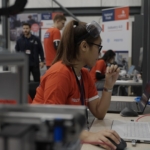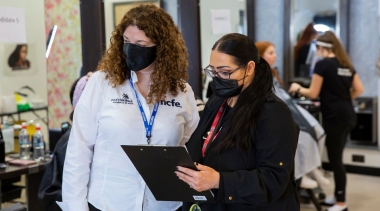“I’ve been the WorldSkills UK Training Manager for Autobody Repair since 2012 so have benefitted hugely from working with international colleagues and attending EuroSkills and WorldSkills events.
“For example, at WorldSkills Leipzig I observed the Japanese team closely as they’re world-class in Autobody Repair, my skill area. It was fascinating to see how they used lean principles to great effect, which had a massive impact on their ability to complete the test project, not only on time, but with minimum effort compared to the rest of the countries. This gives them a big advantage over a four-day period as the Japanese competitors never have to rush any task they have been given, so they can put maximum concentration in at all times.
“Similarly, while working with Denmark over the years I’ve learned how they build the use of core competencies into their training and education system at all levels, which is highly effective in their training. Whereas we will look at the core/basic/fundamental skills once until we reach a certain level and then move on from them, the Danish build these skills into every part of their skills training. This means they never suffer from skill fade as the learner progresses through their training journey with the basics and fundamentals of their skill.
Sharing my learnings
“Since learning about the importance of lean principles, I’ve taught all my apprentices and students the importance of productivity with all areas of their training. I constantly have my learners look at how any task can be performed more efficiently and productively during training, which can then be transferred into their work life.
“Similarly, seeing the effectiveness of how the Danish embed the core skills into all aspects of their training, I have made a point of always breaking down the component part of my skills areas. This helps my learners to build upon competence levels with the core tasks and allows them to strive to have excellence embedded even with simple tasks. This means that clear targets for high marks can be achieved and pushed for at low-skill specific tasks. If learners have the emphasis on having to do the core skills at an excellent standard, the drive to do the difficult skills becomes a lot easier.
Knowledge going further
“It is essential to be a part of such a rich and varied skills network, which is of benefit to all who engage with it. It is more vital than ever that the global insights are shared with the UK’s skills systems so we can keep our reputation as a strong and innovative nation. That’s why the Centre of Excellence, in partnership with NCFE, is so important. I’m now able to pass these learnings onto educators across a number of institutions who will subsequently pass them onto thousands of learners.”






